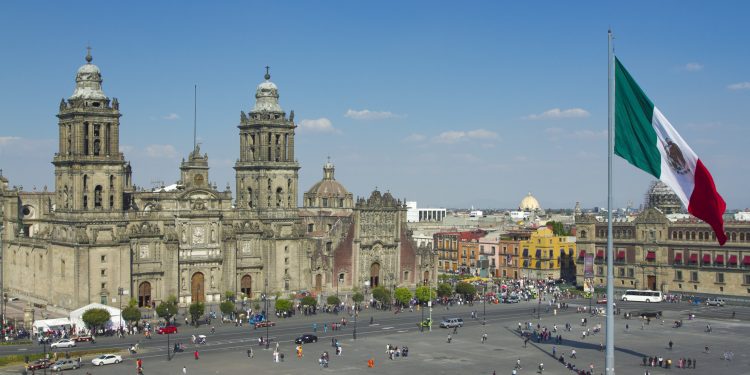By 1920, the three main leaders of the revolution: Madero, Carranza, and Zapata, were dead.
In 1929, the party that would later become the Institutional Revolutionary Party, or PRI, was formed as a way of consolidating the reforms that were included in the 1917 Constitution, and which had begun to be implemented during the 1920s.
A series of presidents under the PRI embarked on a course of fervent nationalism in the following decades, which included the 1937 nationalization of the railways and in 1938 the expropriation of the oil industry from British and U.S. firms. The PRI, backed by pro-government labor unions and peasant organizations, kept a tight control on power.
Government was typically paternalistic, looked on to solve problems of farmers, workers, peasants, and even private business. The 1950s and 1960s saw a period of industrialization promoted by the state, coupled with stringent protectionism that lasted throughout most of the 1970s and part of the 1980s.
In 1994, Mexico joined the U.S. and Canada in the North American Free Trade Agreement (NAFTA). Later that year, it was admitted into the Organization of Economic Cooperation and Development (OECD).
The PRI remained in power for 71 consecutive years until 2000, when the party lost the presidential election to the conservative National Action Party (PAN), bringing about what some considered to be Mexico’s first real democracy. By that time, however, the PRI had already moved far away from its socialist roots, courting foreign investment and having reversed most of the nationalizations during the previous fifteen years or so.
The PAN governed for two six-year periods, or sexenios, and was unseated again by the PRI in 2012. The PAN governments were beset by an increase in violence related to the illegal drug trade, which has continued to the present day.
Mexico’s oil industry—for decades a symbol of the nationalism born of the Revolution—underwent a boom in the 1970s and again in the first decade of the 21st century. Government dependence on oil income, which at one point provided as much as two-fifths of the federal budget, created an unhealthy dependence on oil prices and led to a number of budget crises in recent decades when prices fell.
The Mexican oil sector was opened again to private and foreign investment with changes in the Constitution during 2013 as the state seeks to share the costs and risks of finding new oil in more difficult deposits, such as those in deep water. The importance of oil to the overall economy and to budgets has dwindled, however, and it now accounts for less than 20% of revenue and 10% of exports.
As it traverses the 21st century, Mexico continues to pass through an unprecedented period of change. Political reforms being made in key sectors including communications, energy, and finance aim to transition the country’s economy away from being heavily dependent on oil and manufacturing into a multi-faceted and diverse economic environment, better prepared to face the disruptions and opportunities brought about through global markets and colossal technological evolution.
Presidential elections held in July 2018 brought a landslide change to Mexican politics, as voters elected left-wing candidate Andrés Manuel López Obrador, who campaigned on tackling corruption, violence, and inequality.
See Also: Blog articles about Mexico’s Culture& History
Mexico in your inbox
Our free newsletter about Mexico brings you a monthly round-up of recently published stories and opportunities, as well as gems from our archives.

